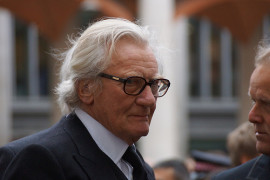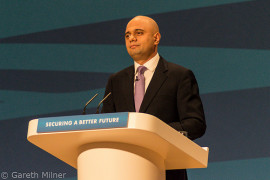The BBC’s approach to EU coverage is pretty much on the lines of a word association game.
EU – Conservative Party – split – europhiles – Michael Heseltine – Ken Clarke – reasonable – superior – prime time.
Eurosceptics – extreme – xenophobic – inferior – marginalise – diss – interrupt.
Labour – unified – no story – splits – never – Tony Benn – past – irrelevant.
That is how it was in 1999 when I started on a BBC/ EU coverage monitoring and transcribing project with David Keighley for Global Britain. And that is how it still is today.
Yesterday, in fact, on Sunday morning, it was back to the future with Andrew Marr (about 20 minutes in to the programme for anyone who can be bothered to watch):
“When it comes to the great Conservative Party debate over Europe,” Marr assured us, “there is nobody who knows the territory better than Lord Heseltine.”
For those of you too young to have been wearied by the tedious and pompous pontifications of this particular peer on the BBC over the years, Lord Heseltine was Deputy Prime Minister under John Major in the 1990s. He retired from his seat and has not been active in politics since 2001. Not that that has diluted his incestuous relationship with the BBC.
They love him because he is an unreconstructed Europhile.
Despite the old boy looking a shadow of his former self, Mr Andrew Deference Marr did his best to big him up:
“He confronted Margaret Thatcher in the 1980s; he stood at John Major’s side in the 1990s and he’s continued vigorously to make the case for Britain to be at the heart of the EU.”
This latter point was, of course, being entirely thanks to the BBC for the permanent platform they’ve offered him for the last 14 years – not mentioned I might add.
Marr then encouraged the old dinosaur to witter on for 6 minutes until he produced the line he was looking for – for the end of programme news headline:
‘Lord Heseltine told this programme that David Cameron was right to tackle the issue of immigration (Is he tackling it? Ed) but he had a warning for the Conservatives: “It is very complex … he (Mr Cameron) is more likely to be successful if the people he’s negotiating with feel he has he backing of the party that he leads.”
The only conceivable reason for having him on – since he is not active in politics any more – is when he can be used to highlight ‘Tory splits’.
One thing those canny BBC news producers can rely on is that he will diss whatever the Eurosceptics are currently doing.
No surprise then that nothing that former Cabinet Minister Owen Paterson – who appeared later in the programme – could say was going to make the headlines – however strong his critique of Britain’s current relationship with the EU. Not even his revelation that Britain, still a great global trading nation, is now represented in world trade councils via the EU by a female former psychiatric nurse from Sweden – no doubt a great expert on trade – demonstrating just how much power over our own affairs we have ceded.
It gets worse. Not content with digging Lord H out of the woodwork the BBC ignored Kate Hoey’s incendiary article in the Mail on Sunday – incendiary for the Labour Party that is – on her Brexit advocacy and on her searing critique of the Labour leadership candidates’ failure to understand why the party lost votes to Ukip.
Was she on Andrew Marr’s sofa? Of course not. Just an obscure SNP MP John Nicholson and Marr’s favourite liberal leftie, self-regarding Shami Chakrabarti.
But then, according to the BBC, the Labour Party is never split on Europe. How convenient since that means it cannot be newsworthy that Kate has criticised Labour for being so pro-EU that its sceptical members aren’t taken seriously.
Yet Kate is one of about 20-30 Labour MPs who want to exit the EU, along with prominent Labour donor John Mills. Yet another prominent Labour eurosceptic the BBC chose to ignore is Kelvin Hopkins, MP for Luton and former Nalgo official, who was on the EU Scrutiny Committee.
The BBC rarely, if ever, talks to Labour Eurosceptics – in the past or currently. News-watch, who have conducted consistent monitoring of the BBC’s Today output for the last 15 years, told the EU Scrutiny Committee recently that across all the programmes they had surveyed only one in 1,400 speakers on EU affairs was a Labour withdrawalist.
Over the May general election, the only speaker on Today representing a leftist/socialist withdrawal position was one Ken Capstick from the Socialist Labour Party (the rump of Arthur Scargill’s operation). The exchange with him lasted an entire 15 seconds
Of course the 20-30 Labour ‘dissenters’ does not compare with the 100+ in the Conservative party, but this does not justify the BBC treating the Labour Party as if it is in complete unison when it is not.
Kate Hoey’s article was significant by any standards because it’s the first time she has gone so prominently on the front foot. Nor will you get any enlightenment on this from BBC website. On Sunday, there was (of course) a story on Labour going strongly pro-EU on the referendum, but nothing about Kate Hoey.
Plus ca change….
This article first appeared on The Conservative Woman



